Hacking Health Team Interview Blog Series
Meet Joscha Hofferbert, Hacking Health Berlin Chair, Psychologist, Neuroscientist, Vision Health Pioneer Incubator and Healthcare Studios Founder. We’re delighted to have such an ambitious digital health advocate and mental health leader such as Joscha on the Board of Hacking Health’s Berlin Chapter.
Today, we want to share more about his journey as a healthcare innovation leader, founder of Vision Health Pioneers Incubator, his experience working in various healthcare organizations, his newly founded creative innovation agency, Healthcore Studios and his learnings from Hackathons and the digital health scene.
This blog post outlines a recent interview we had with Joscha and will provide you with a good overview of his healthcare ambitions, professional background, digital health interests, eMental health applications involvement, social psychology research and more on his experience at Hacking Health. Enjoy getting to know our Team!
Interview with Joscha Hofferbert| Blog post by Alexandra Verzuh | Hacking Health Berlin
***
Why did you decide to develop the Vision Health Pioneers Incubator and what did you learn on this journey?
During my time organizing Hackathons and activities which foster innovation in healthcare to develop new solutions, I realized that Hackathon participants had huge potential and were highly motivated to develop new solutions for challenges they had seen in their professional and daily life. Unfortunately, most of the projects that have been developed during the Hackathons were not pursued further. The reasons for that are multifaced but what became apparent as the main factor for this issue was the missing support (in Berlin and Germany in general) for start-ups in their early stages. Especially in a highly regulated sector with such a high number of stakeholders involved, the early stages for start-ups can be very difficult and tiresome. As a result, young entrepreneurs need to get very specialized coaching and support that covers the needs and challenges in the healthcare sector. However, existing incubator and accelerator programs in Berlin were lacking this support and expertise. As one of the leading start-up, technology and healthcare hubs in Europe, Berlin already had the infrastructure, network and experts but needed the respective structure and concept.
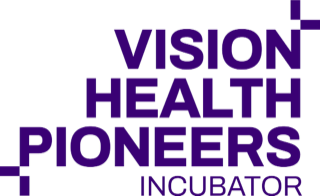
But even with the respective structure, financial support, and knowledge we provide, success is not guaranteed. One of the main factors for a start-up to be successful are the people and the team they create together. From the individual motivation, drive, resilience, personality, and leadership skills of each of the team members to the team dynamic, structure, development, and identification, these have all been shown to be decisive factors for the success of start-ups in their early stages.
My passion is to identify high potential experts, as well as innovative ideas to build successful teams with the needed motivation, drive and resilience and accelerate the development of their product with them.
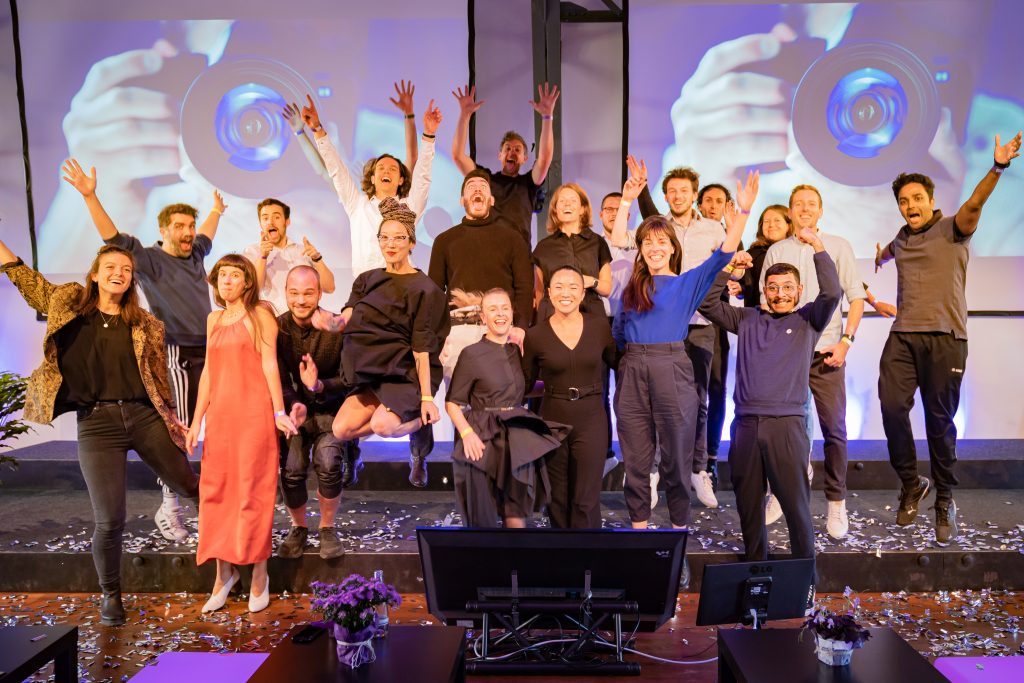
Can you tell us more about Vision Health Pioneers and who can get involved?
Vision Health Pioneers is an early-stage incubator with a focus on healthcare start-ups. We support young entrepreneurs in a 10-month program to develop their solutions from the concept idea to a product and then gain market access. An important aspect is that we provide the teams with all relevant information and knowledge to build a product and start a company in the healthcare sector. The stipends/teams get general and very specific coaching from experts from different fields alligned to their teams’ needs – ranging from business, regulatory, legal and marketing topics to lean product development, leadership, team building, and investment strategies. An important part of the incubator is the network of mentors, coaches, and partners we developed over the last three years.
The program focuses on early-stage start-ups that have a compelling idea for a medical/healthcare solution and that have not received any substantial funding so far. As it is a full-time in person program, the participants need to be located in Berlin and stay here for the entire time of the program. But of course, we are happy to welcome start-ups and stipends from other cities and countries to come to Berlin and join the program. We’ve had very good experiences with companies from other countries in the past and are happy to help with all legal topics needed.
I can see that you’ve had an interesting career in various health organizations, can you share about your experience and learnings with us?
One thing that became obvious in most of my positions over the last eight years, is that the development and implementation of innovation in the healthcare sector is highly dependent on the cooperation and integration of a variety of different important stakeholders from healthcare and other relevant industries. One prominent example would be start-ups, who need to consider the responsibilities and dependences of multiple stakeholders in the market to develop solutions with a high product-market-fit and align them to their needs.
Without cooperation with healthcare insurers, corporates, hospitals, clinics, research institutions, healthcare professionals and/or others, start-ups and scaleups most likely fail to be successful in the long run. But this is also the case for providers, insurers and corporates that also highly depend on cooperation with start-ups, entrepreneurs, and innovators to develop and deliver high-class services and products, that are tied to the demands and needs of their customers and patients addressing the ever-changing challenges in the healthcare sector.
You just recently founded your own company (Healthcore Studios). Can you tell us more about it and what you do?
Healthcore Studios is a creative innovation agency that fosters innovation for institutions and companies in healthcare. Our basic approach is to support and empower individuals and organizations (both large and small) in healthcare to innovate services, products, and processes. Together with our clients, we identify their internal challenges, support them in the identification of business potentials, the development of innovation strategies, and the implementation of structures and processes for their long-term innovation strategy.
By organizing activities like Hackathons, workshops and innovation activities, we provide a platform for collaboration as well as hands-on ideation and development of innovative approaches and solutions. We use our experience of working with multiple partners in healthcare innovation over the past eight years to support organizations like clinics and hospitals, as well as large and small companies to develop their own innovation pathways.

How did your passion for digital health come about and what has your experience with it been to date?
During my time as a student working in social psychology research, I was fascinated by the idea of using everyday data already collected through digital tools (cell phones, wristbands, and other devices), as well as social media data to better understand and predict human (social) behaviour. As a result, I started working in an innovation agency analysing social media and other behavioural data to be used for (consumer) predictions and forecasts. My focus was always on healthcare topics. Consequently, this drove me further into the digital healthcare scene where I worked in different positions (from start-ups to consultancies, etc.), as more and more digital solutions in the healthcare market emerged and the acceptance of such solutions slowly (but steadily) increased. My engagement with Hacking Health early on in 2015 only enhanced this interest and it remained ever since.
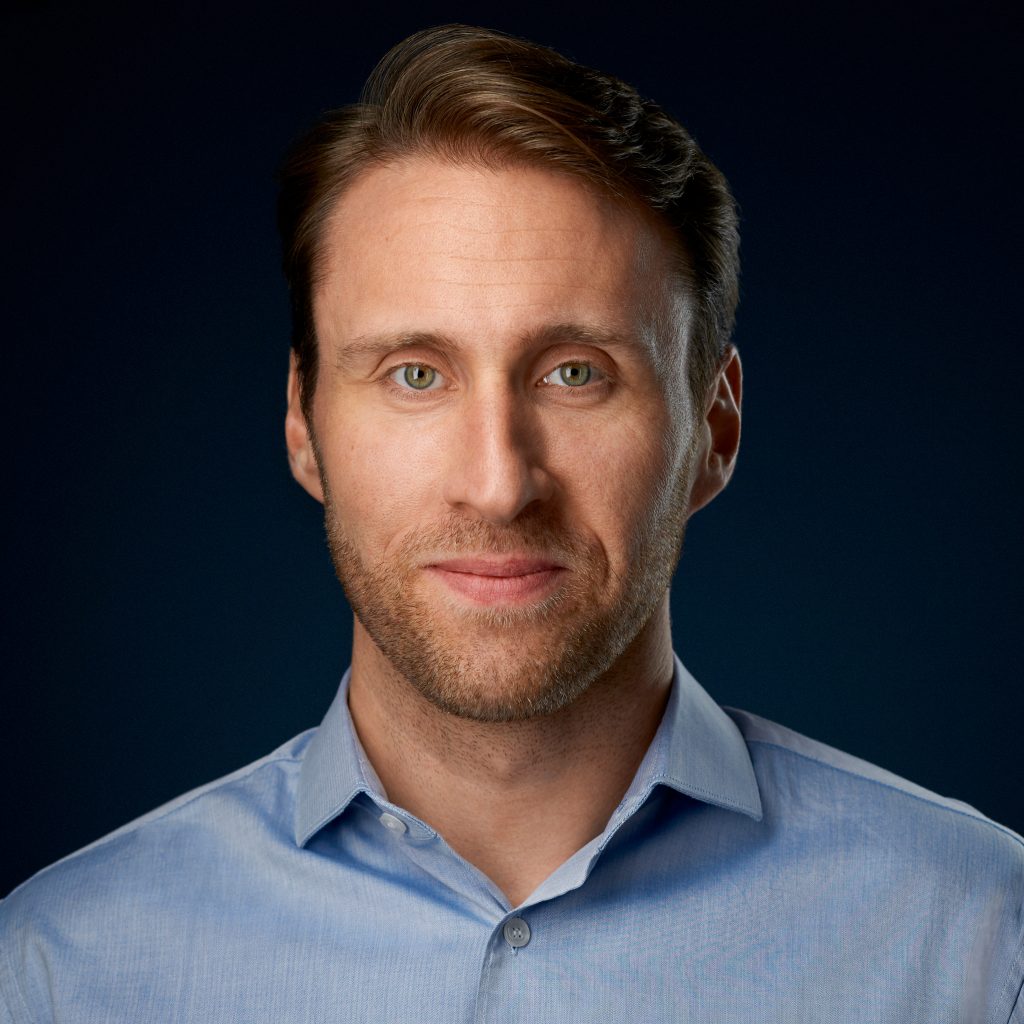
What is you experience with eMental Health and what are your thoughts on the barriers, opportunities and trends that exist in such an industry?
As a Psychologist and Neuroscientist, I’m genuinely interested and engaged in the field of eMental Health applications. Over the last 5-10 years, there has been lots of movement in the field and many good approaches have been developed. However, there is still a huge potential for patient-centered applications that address the patients, as well as the caregivers’ needs and challenges. Most current applications digitalize existing therapy methods and components (iCBT for example), making them more accessible, more user-friendly and more effective. So far there are only a few applications using technology and its potentials to create new therapy methods and approaches. First existing approaches, such as using virtual reality for exposure therapy, have shown to be highly effective and could easily be integrated into standard patient care.
Another part of psychotherapy that provides a huge potential are trans-sectorial approaches that enable the transition of patients beyond the (still existing) sectorial borders, ensuring consistent and seamless quality of care.
Unfortunately, strong regulations especially in Germany still make it extremely difficult to integrate such solutions into standard care with the respective reimbursement structures in place. But there is light at the end of the tunnel…
It’s clear that you play a pivotal role at Hacking Health, can you tell us more about what you do there and why you think this type of organization is needed in this day and age?
As the first chair of INCH e.V., the legal organization that runs Hacking Health Berlin, my role is quite diverse. Besides leading the organization from an organizational and operational point of view, my task is mainly to build up our network of partners, members, and participants as well as to plan activities like workshops, Hackathons, and other events. But this is not my task alone, everyone at the organization is welcome to organize activities or suggest projects they would like to run. This is an important aspect for us within the organization, as we want to empower everyone to contribute to our activities.
We’ve built a structure that enables experts and those interested to collaborate and interact with like-minded people to learn, create and grow. Unfortunately, in today’s professional life that is focussed on efficiency and process orientation, experts rarely get the chance to work on something they are passionate about and create something with like-minded people that can have a direct impact on their own and/or other people’s lives. We want to give everyone the opportunity to have an active part in our organization and work on projects they are interested in.
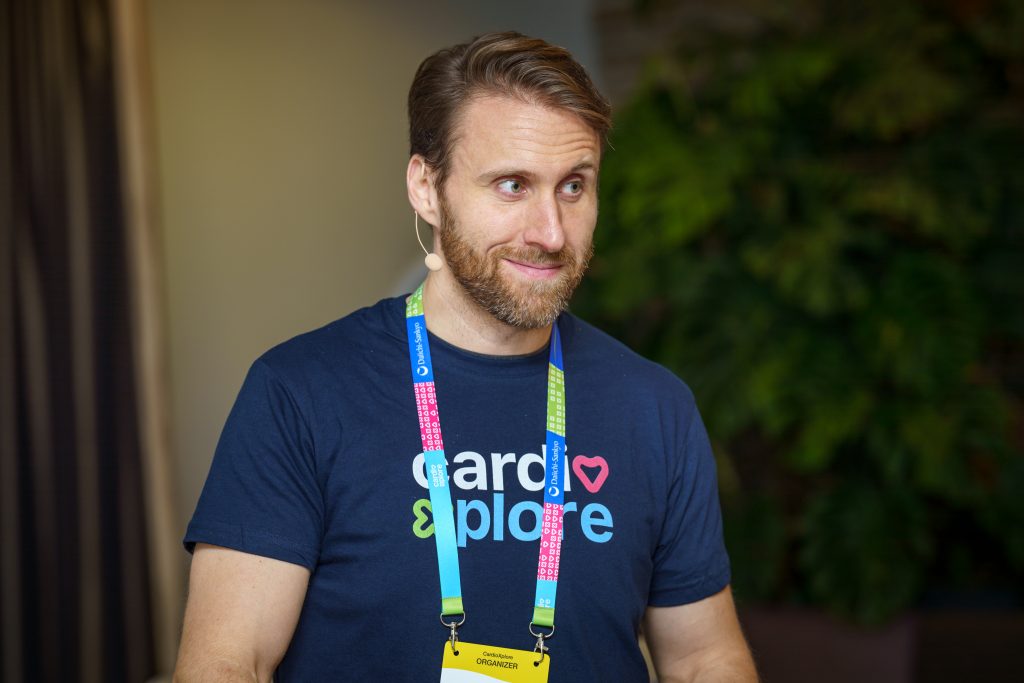
What have been some key discoveries and/or findings from previous Health Hackathons that you found particularly interesting?
When I joined my first Hackathon in Strasburg (Hacking Health Camp) in 2014, I was very impressed with the huge amount of participant creativity and engagement during the two and a half days. This impressed me even more than the fact that the teams developed incredible ideas, solutions, and prototypes in such a short time. Back then I believed, new innovation needs a sophisticated and long process to be elaborated and developed. The Hackathons I attended as well as the ones I organized taught me that I was wrong, and creative ideas and concepts rather need a well-equipped team, relevant experts to support them with their expertise, and a framework that makes it possible for them to develop their ideas. All this is provided by the Hackathons we organize.
Unfortunately, systematic collaborations, patient-centered innovative products, as well as awareness for innovation in healthcare fostered through the Hackathons and other activities are not established enough in healthcare so far. It is therefore great to experience what an event of only 2-3 days can accomplish if appropriate support systems during and after the event are provided and established for long-term support and engagement.
Can you recommend any health hacks you use in either your private life or day-to-day professional life?
I usually recommend the teams and entrepreneurs I’m coaching at Vision Health Pioneers, as well as at the Hackathons to take dedicated time off to reflect, educate themselves and do something that is totally unrelated to work. I personally enjoy my daily dose of sports with my friends. It’s good to see them and talk about work-unrelated topics, as well as to be active together. After a stressful day this is something that relaxes me and calms me down.
I also have a dedicated morning routine which starts at around 5:30/6:00am to ensure I have time for myself. During this time, I do some yoga, answer emails, prepare for the day’s meetings and get important tasks done. Everyone should find the routine that best works for them. This helps people find balance, as well as dedicate time to tasks they need to focus on. For some, this might mean working late at night if they are more productive then, whereas for people like me it’s in the mornings. Also, I can recommend taking time during the day for short breaks to do some mindfulness activities or meditation. Even though I don’t do it regularly (unfortunately) it always helps me to calm my mind.
What have you learned from being involved with Hacking Health?
As mentioned before, my biggest learning from being involved in Hacking Health and organizing Hackathons is that innovation is not magic that happens in someone’s room alone but is a collaborative process with a very strong human, social and interactive focus. It is fascinating to see how much a team made up of the right people can accomplish in a very short period of time, when they are motivated and driven to make a change. This is true for the team that find themselves and participate at our Hackathons but also for our Hacking Health team that consists only of volunteers.
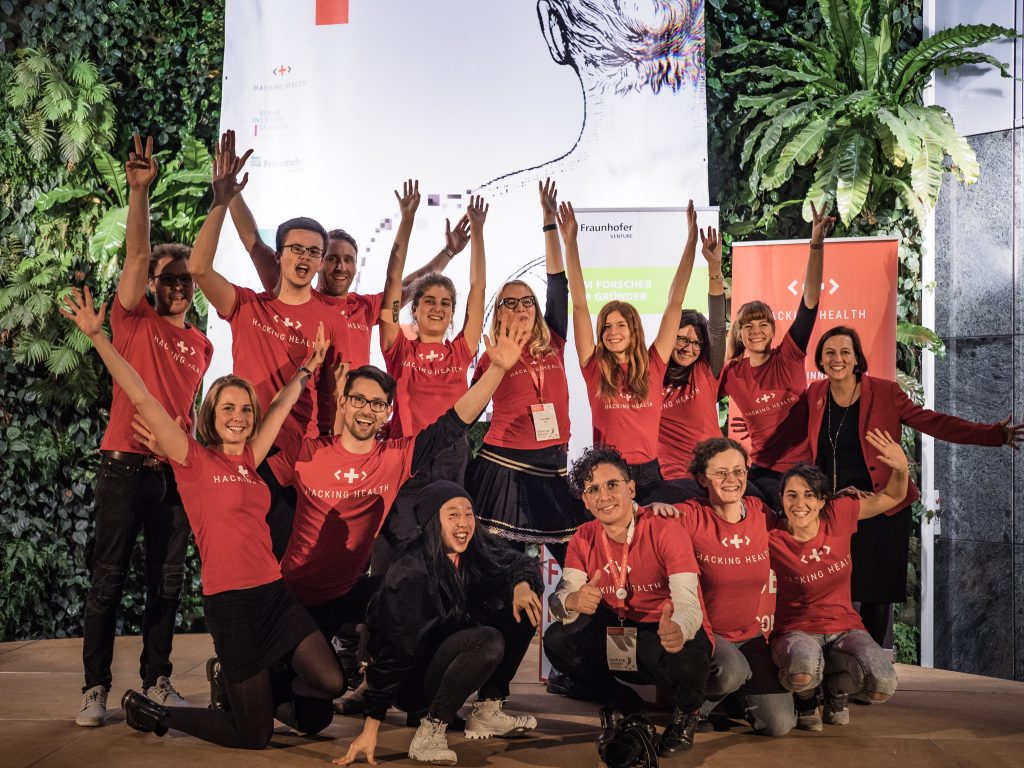
Why do you think Health Hackathons are vital to the future of our healthcare systems?
Hackathons are a great opportunity to unfold the innovative potentials on multiple levels that scarcely exist or require large amounts of time and effort to be developed. Besides the opportunity to ideate, prototype and test potential solutions in just 2-3 days with highly skilled interdisciplinary experts, as well as end-users, Hackathons also provide the unique potential to educate participants on multiple levels through practical experience of innovative product ideation and development. During our Hackathons, event participants experience how we use innovative methods to develop new approaches and solutions for existing challenges in their everyday life. This is a great way, especially for healthcare professionals, to develop solutions for real life challenges they experience every day.
Additionally, Hackathons bring together highly skilled experts from different fields that only meet very rarely in their professional and everyday life. The exchange provides the unique potential to develop meaningful collaborations between relevant experts and organizations based on a common goal and/or project, creating business potential.
If you’re interested in connecting with Joscha, please reach out to him through the following channels:
Stay tuned for more upcoming blog posts about our Hacking Health Berlin team. But for now, read our recent blog post about our Patient Monitoring Roundtable.
***
> Back to Hacking Health Berlin
 by Alexandra Verzuh
by Alexandra Verzuh
Alexandra is a strong marcoms professional with a global focus and over ten years of international experience in communications, writing and marketing; widely travelled with a passion for healthcare, health tech, digital innovation and technology. She is also a Certified Transformational Coach with a BA in Psychology and an MSc in International Business Management.

